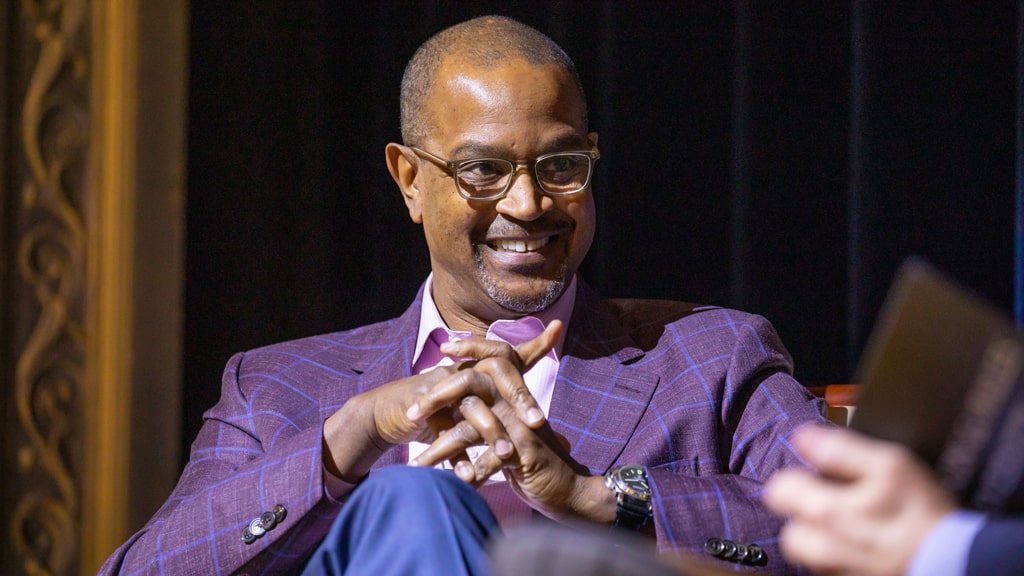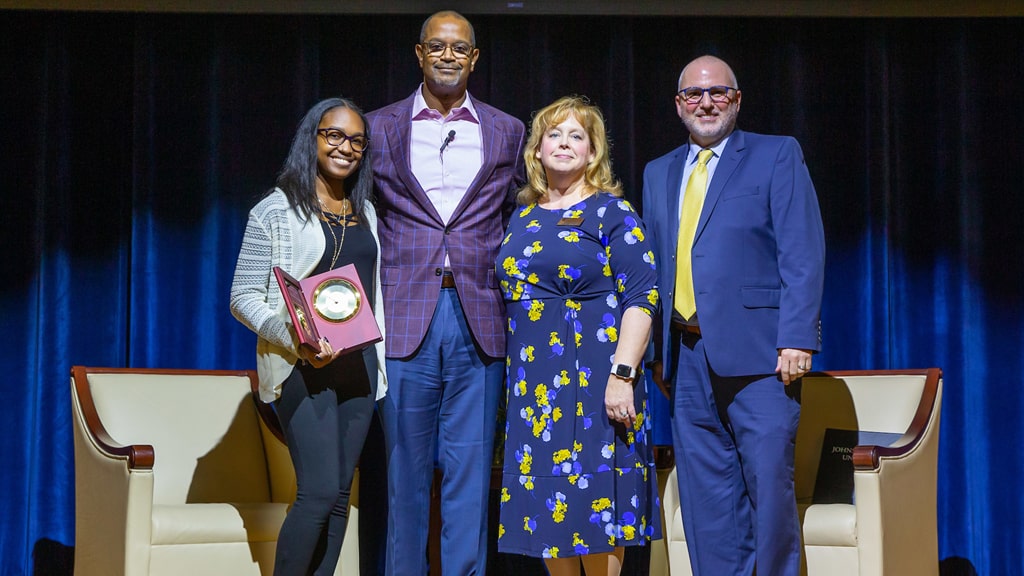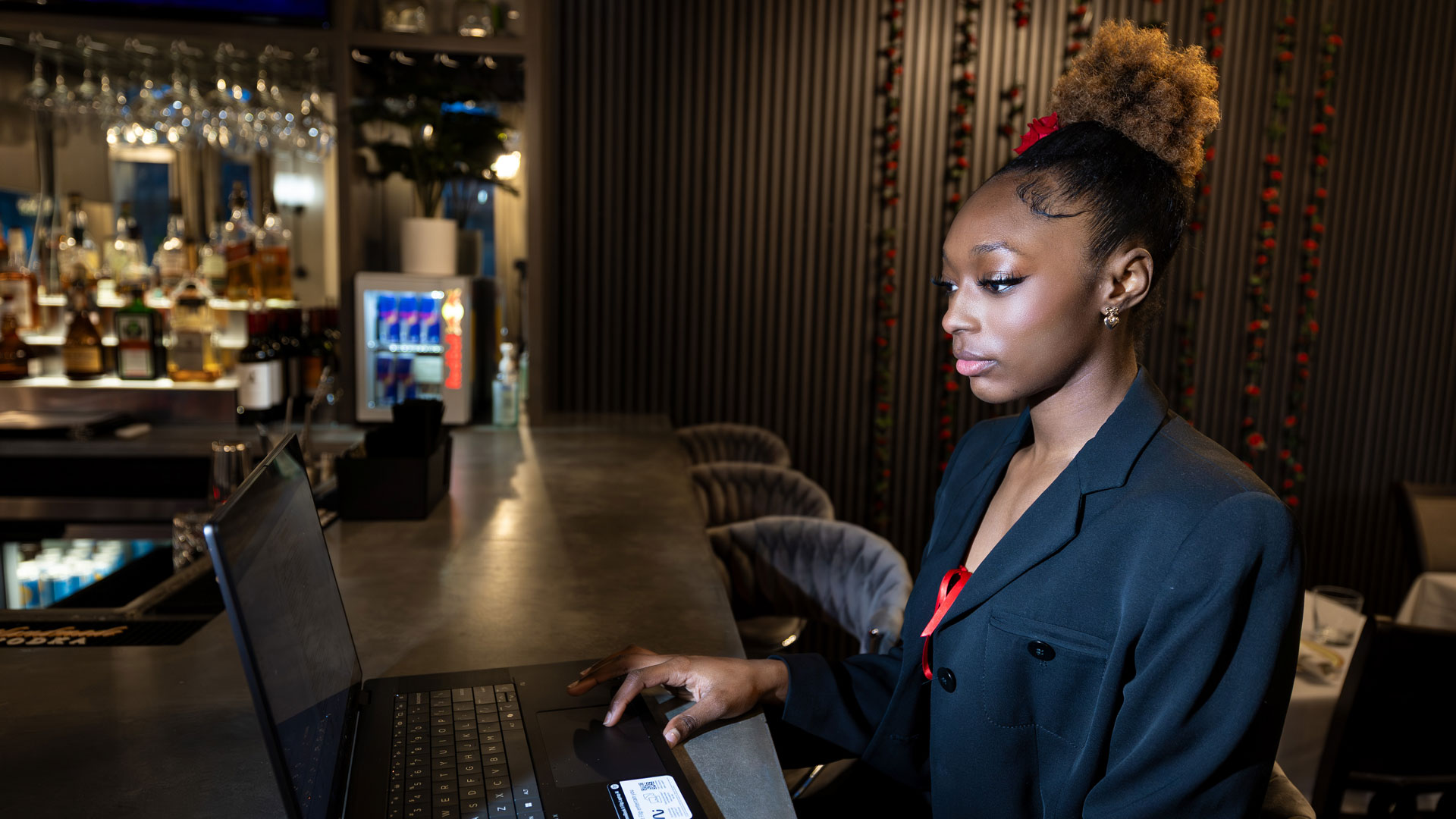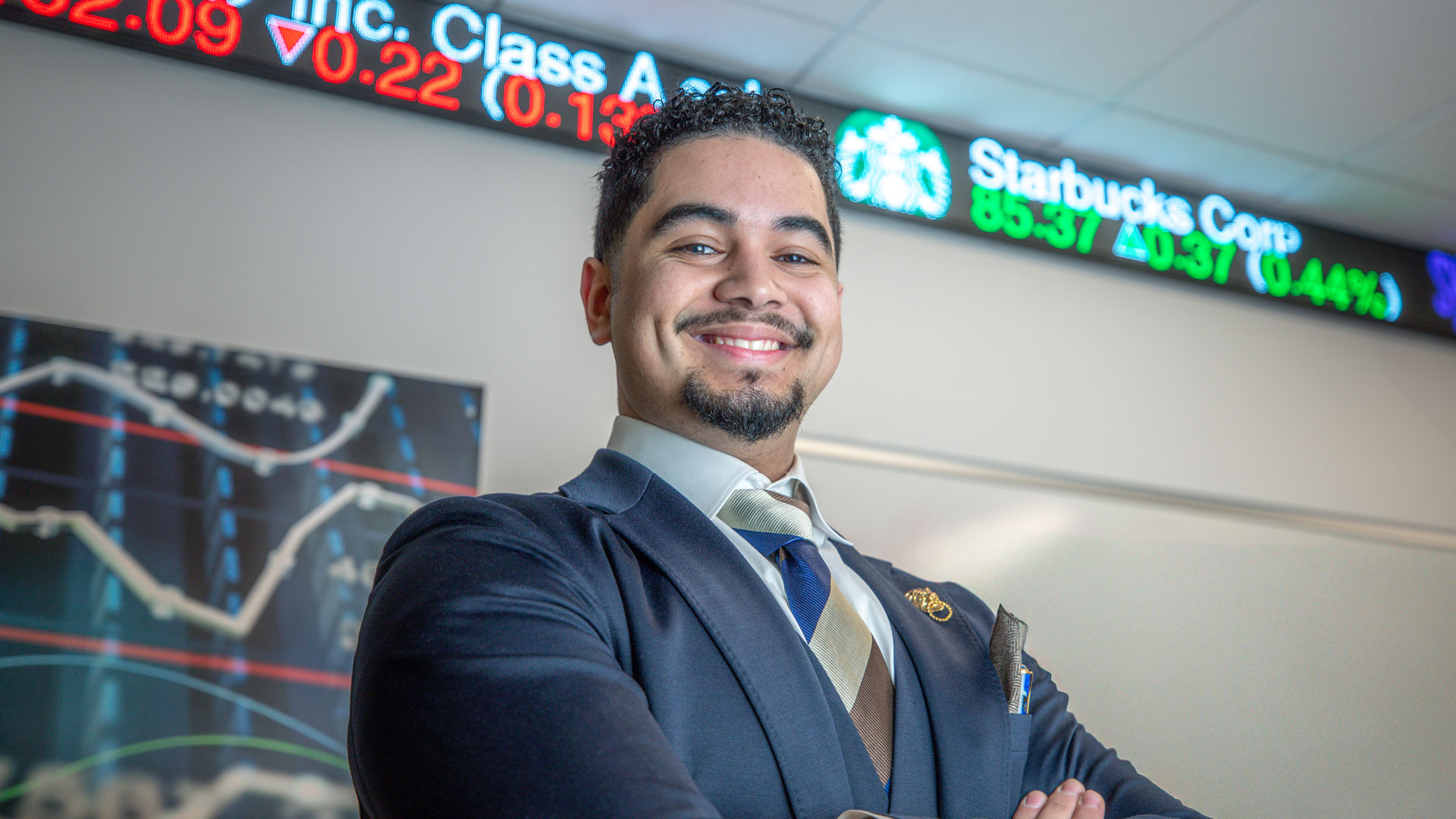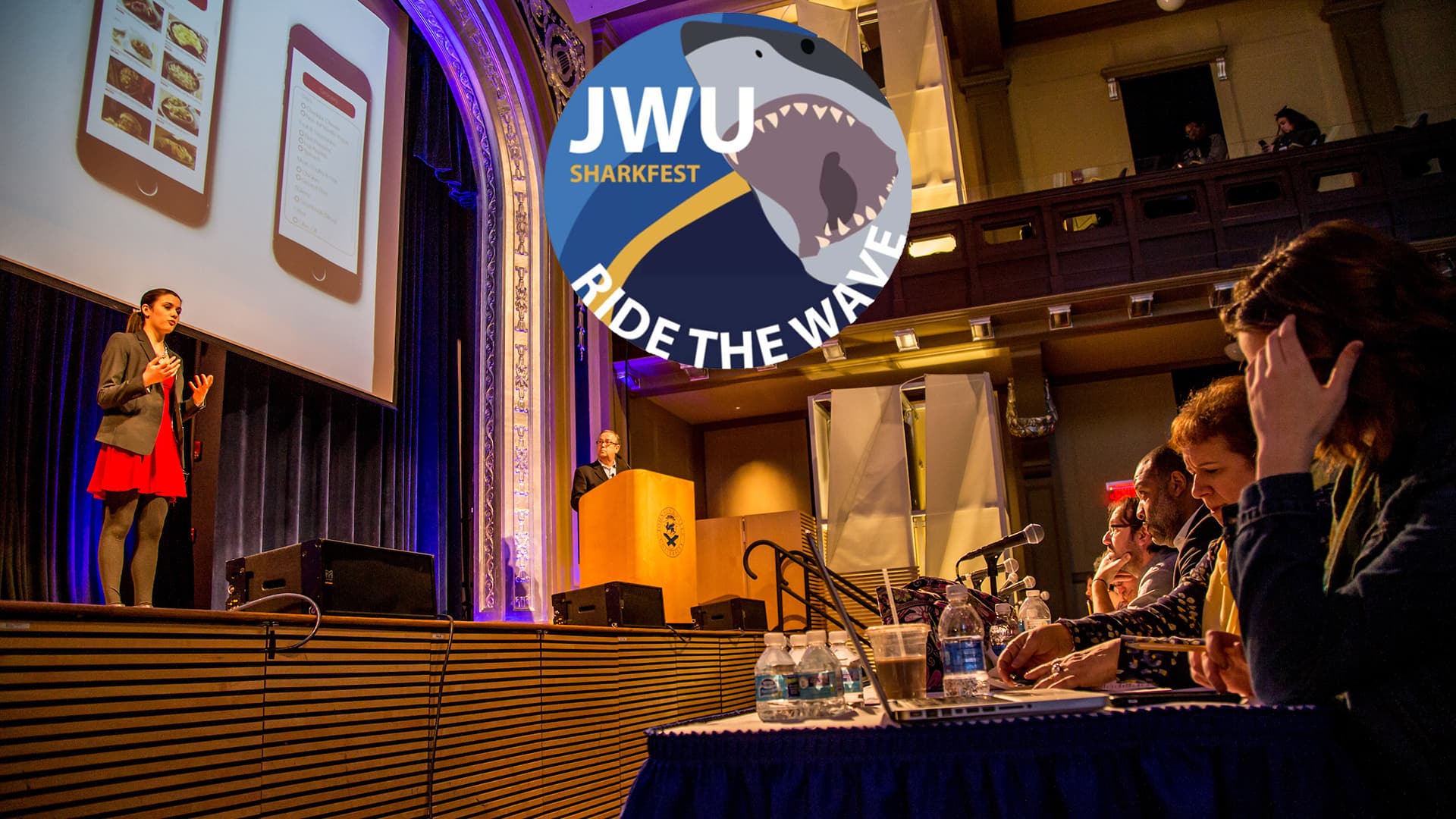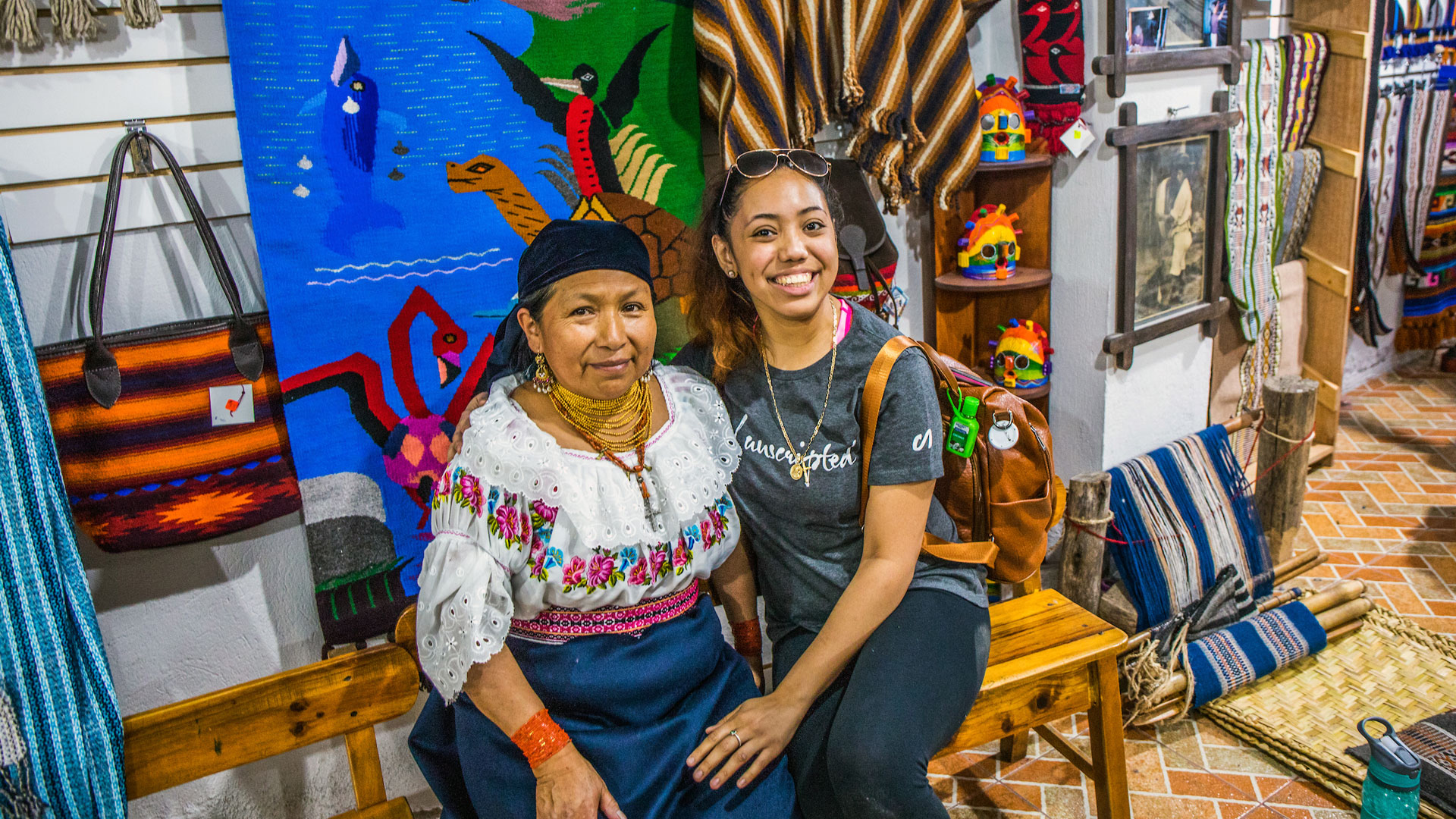Life Lessons from Visiting Industry Professional Chip Wade '83, '06 Hon.
September 2022 Update: Chip Wade has been named chief executive officer of Union Square Hospitality Group (USHG), succeeding founder Danny Meyer. Read the recent profile of Wade by the New York Times’ Kim Severson.
JWU’s third Visiting Industry Professional (VIP), Chip Wade ’83, ’06 Hon., president of Union Square Hospitality Group (USHG), recently shared his insights on creating legitimate change in the hospitality workplace.
A founding board member of the Multicultural Foodservice & Hospitality Alliance (MFHA), Wade is dedicated to increasing racial and gender representation in leadership positions and ensuring pay equity at USHG and beyond.
Speaking with Richard Wiscott, Ph.D., JWU’s vice provost for academic affairs, Wade called his years at Johnson & Wales “the foundation of who I am.” Only 17 when he arrived on campus, it was his first time away from home, and the classes proved crucial for his development. “My love for food, my passion for hospitality, all began here at JWU. The university the people will always be near and dear to me,” he explained.
Wade shared the ways that his JWU education influenced his subsequent career — and offered advice to students looking to center diversity and equity in their own careers. He firmly believes in the idea of having not just industry mentors, but curating your own personal “board of directors” — a team of trusted advisors who will influence your personal and professional growth with honesty and empathy.
What was the greatest lesson learned from your own student experience?
CW: Well, there are so many. I was at the university in 1981 through ’83. Again, I’m a 17 year old kid. I’m away from home. My second job was working at a restaurant called Spat’s on Thayer Street. I worked for these gentlemen of Greek descent and they owned and operated four or five restaurants throughout the city; I have fond memories of going to school, studying and then going to work.
One of my first classes was meat cutting. It was six or eight weeks, right — you go into this class with your peers and there’s a half a cow there! I’ve never seen a cow except on TV! And then one of the things that we had to do is learn how to break down the half a cow to an 8 ounce or 12 ounce filet. I’ll never forget that and I found it exciting and exhilarating. And there was another class on soups and sauces and I was with my dear friend Craig Lasky who passed away, sadly. In a lot of those classes, I remember learning from my peers as much as I learned from the professors!
On your worst days, when you felt the least motivated, what pushed you to keep going?
CW: I often talk about this simple notion of defining moments. All of us have these defining moments in our lives and they shape who we are and they shape our outlook and our perspective on life. I had one here at JWU inside my dorm room. It was late October and it quickly dawned on me that I was running out of money and I remember looking out the window, literally crying and thinking, “How am I going to pay for college?” Because I couldn’t call mom, right? All of that was new to me. I was going through this period crying on my bed and finally, I’m like, “I gotta figure this out by myself.”
“My love for food, my passion for hospitality, all began here at JWU.”
That really shaped me and all of the adversities that I’ve gone through, and setbacks and new roles. I’ve been at this for 34 years. … I’ve been downsized twice. I’ve been fired twice. But I often reflect on that period where I said, “Stop wallowing in self-pity. I’m going to figure this out.” I ended up getting a second job and ended up paying for school — it’s that fight-or-flight mentality. That’s a powerful moment.
How do you find that mentor that you can share your story with and learn from?
CW: Get comfortable sharing your story, however painful it may be. And I would say have the courage and seek out people that you care about and that care about you. Surround yourself with people that care about you and want to help you mature and evolve and grow, and I think you’ll have success.
But I will also acknowledge it’s not easy. I had 14 great years at TGI Friday’s, but I had never seen a person of color at the vice presidential level, never. And so when I joined Darden — I was a director at Olive Garden — I go into one of my very first meetings and I see a gentleman by the name of Doug Green — who’s a dear friend to this day, African-American, he’s a vice president — and I said, “Holy smokes, there’s a person that looks like me!” And so, because of that, I started asking questions and I wanted to spend time with Doug. So I would say: Have the courage seek out people.
What should we do differently as educators to bring up our minority students to seek and gain their place in senior leadership?
CW: I don’t know if there’s anything different — what I would say is more conversations. … I think we should do more of initiating the conversation, and not always wait for the student who may have his or her own fears or reservations. We all have a story to share. We all come to this world with baggage and our biases and our fears. And I think allowing the students to get comfortable to talk and then creating a forum where they can talk, either in a setting or individually, is how we can move this this topic forward.
“Surround yourself with people that care about you and want to help you mature and evolve and grow.”
What’s your message to younger people about breaking barriers and standing up for what they believe in while still keeping their personal and their professional brands in mind?
CW: My message to the group is to lead with courage and conviction. Be true to yourself and the values that you have. Get comfortable with the notion of being uncomfortable. It’s an odd phrase I’m mindful of, but the notion of getting comfortable with being uncomfortable means that you’re going to maybe embark on a different path, that you are going to stand up for what you believe. And so that is my challenge and that is my message.
One of the things that gave me such optimism and a sense of pride during some of the protests throughout our country — but in New York specifically — was to see the diversity of people walking through the streets. And they were very calm, they were comfortable and they were young adults, all working together in solidarity, and you can’t help to get excited about the future of our industry and our country when you see this younger generation coming together.
Do you feel you’ve done this in your career as you’ve moved up?
CW: I always think I could have done more, but I have tried to do my best to have a voice while at the same time getting my work done.
Gerry Fernandez ’86, ’14 Hon. has been a good friend and a mentor of mine. He started an organization called the Multicultural Foodservice & Hospitality Alliance (MFHA). I was young in my career — 33 or so — and Gerry was working on the very first annual MFHA conference. I said, “Gerry, how can I help you?” And he looked me in the eye and he said, “The best thing you can do is do the job that you have, because if we don’t have people of color” — at this time I was a director — “if you’re not performing at a high level and getting results then you can’t help to champion diversity inclusion and belonging.” It was one of the best pieces of advice that I’ve ever gotten from a leader. Basically, “I know you want to do a lot, and I know you want to be on this committee, but be really damn good at your job and deliver great results.”
This conversation has been condensed and edited from its original format. Watch the entire video below:
Explore Hospitality Programs Apply to JWU
TOP: CHIP WADE '83, '06 HON., SPEAKING WITH VICE PROVOST RICH WISCOTT, PH.D. BOTTOM: WADE (CENTER) WITH VIP STUDENT HOST KAELA GAYLE '22, INTERIM HOSPITALITY DEAN JENNIFER GALIPEAU, AND WISCOTT.
